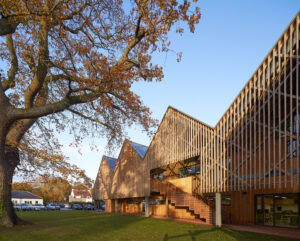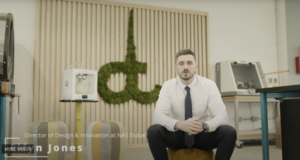New approaches to education to make flexible learning spaces more important than ever
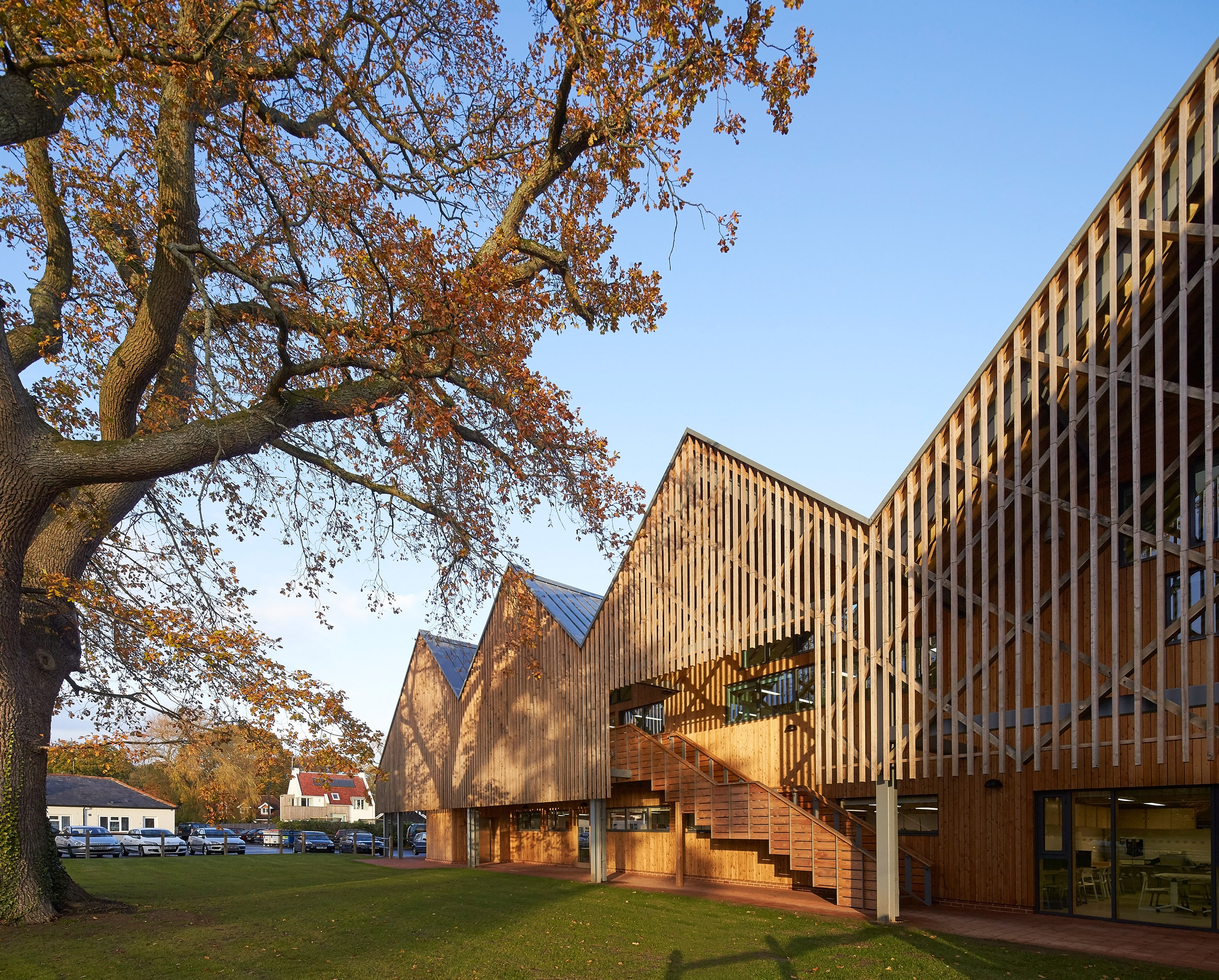
Bedales School
School examinations have long been a point of great debate – do the grades really matter? Are they the best method of measuring the breadth of a student’s knowledge? Is the mental and physical impact they have on young people really worth it? Wherever you stand on the subject, we can all agree that the everchanging nature of the world’s workplaces means that the workers of tomorrow will need to wear many hats (probably not literally) in whatever role they find themselves in and must be equipped with a wider range of skills to cope with this.
With this in mind, many of the UK’s independently owned schools have made the decision to ditch the traditional GCSE examinations in favour of their own unique qualifications which allow their students more choice in their educational journey.
Bedales, an independent high school in Hampshire, is just one of many British schools to announce plans to move pupils onto their own “Bedales Assessed Courses” in most subjects. It’s worth noting, however, that while many independents are bidding farewell to most of the traditional examinations, they will be keeping GCSEs in both Maths and English, as these are often required by employers.
These changes stem from the general feeling in the educational sector that the current exams are no longer fit for purpose. In fact, a report from the Tony Blair Institute for Global Change, entitled ‘Ending the big squeeze on skills: how to futureproof education in England’ stated that it would be more beneficial to children to introduce new qualifications that involve “multiple rigorous forms of continuous assessment” should be introduced, while also retaining a “series of low-stakes assessments” at the end of secondary school in order to better prepare young people for the world of work rather than judging their education on a single skill assessment.
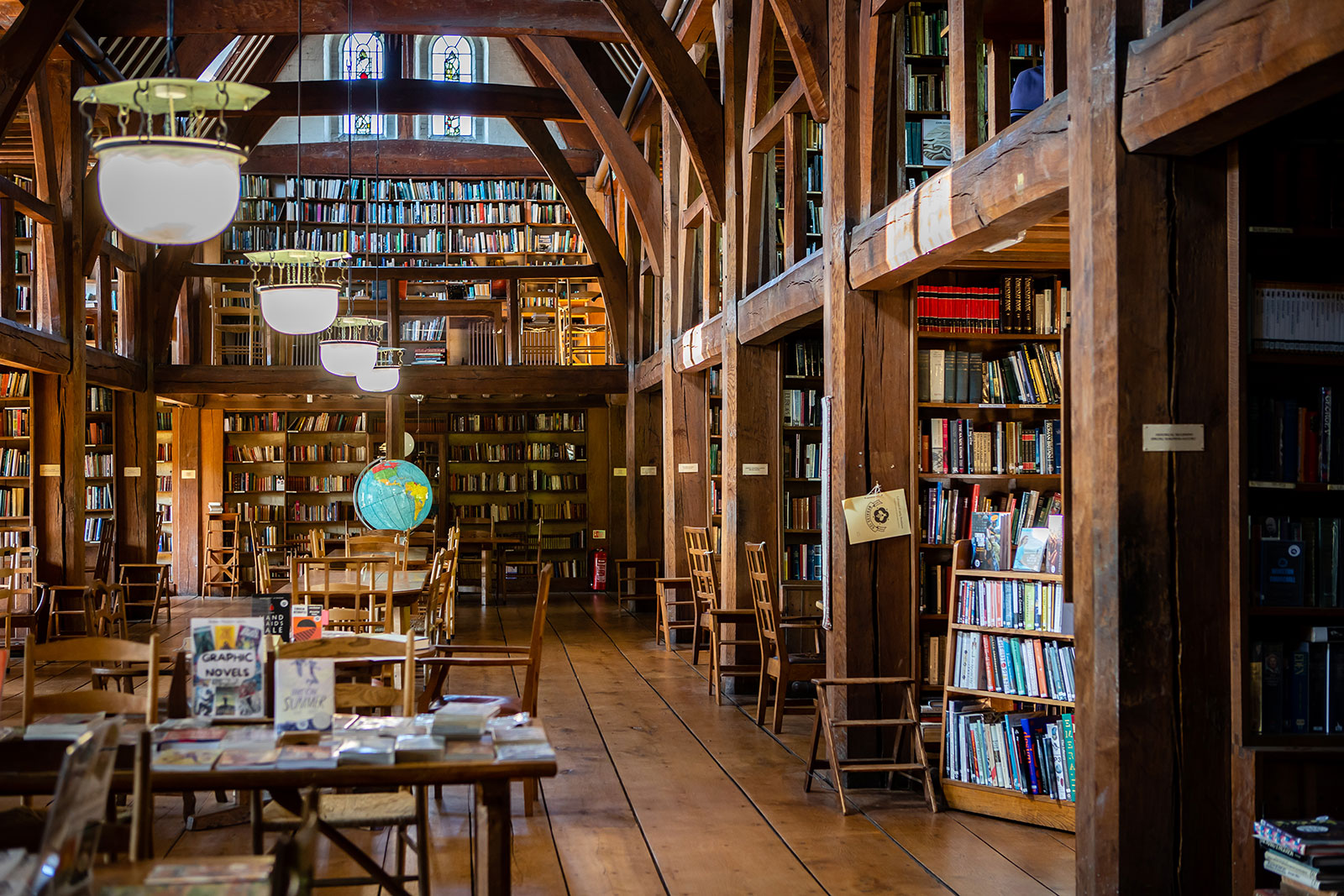
Bedales School
Many critics insist that the current examination system provides “analogue learning” in a digital age, instead of supporting students in learning the skills necessary to thrive in a world that is becoming increasingly reliant on technology in all its forms. And while the GCSEs are a widely recognised qualification by employers around the world, it has been noted that the UK is in a small minority of developed nations that have public examinations at 16, with few other nations dividing student populations at this age.
The heart of the issue for many, is that for many students (of all backgrounds) exams are a source of anxiety that can often impact their performance, and therefore don’t fully reflect their grasp on the subjects they are being tested on. Geoff Barton, the general secretary of the Association of School and College Leaders, said “The current system of GCSEs relies on students taking a very large number of end-of-course exams. There is often no opportunity for ongoing assessment or ways to adapt the qualifications to best suit the needs of pupils.”
“A grading cliff-edge in English and Maths results in a third of 16-year-olds leaving school without a Grade 4 standard pass, something that is both demoralising and damaging to their future prospects.”
Considering these exam results are often ones that follow people through their working life, shouldn’t the focus be on assessing as much of their educational life as possible, rather than judging their entire school career in a single sitting?
Barton went on to say, “In the face of an examination system that feels increasingly outdated, it is unsurprising that some schools are exploring alternative options. It is time to rethink GCSEs to reduce the burden of assessment, increase flexibility and ensure they are fit for the 21st century.”
Instead of the traditional 10 GCSEs, students at Bedales will take the required Maths and English, and for the other 8 subjects, children will be taking courses in both traditional subjects and unique ones, all devised by the school. These Bedales Assessed Courses or “BACs” are assessed partly by the coursework that used to be part of the GCSEs, but was ultimately scrapped as it was felt that this was too open to abuse by pushy parents. However, in addition to this coursework, students are also assessed through exams, vivas, project work and teamwork, and the resulting grades are given on a 1-9 scale. The important factor to take note of is that the result is not based on a single assessment, but rather a collection of work.
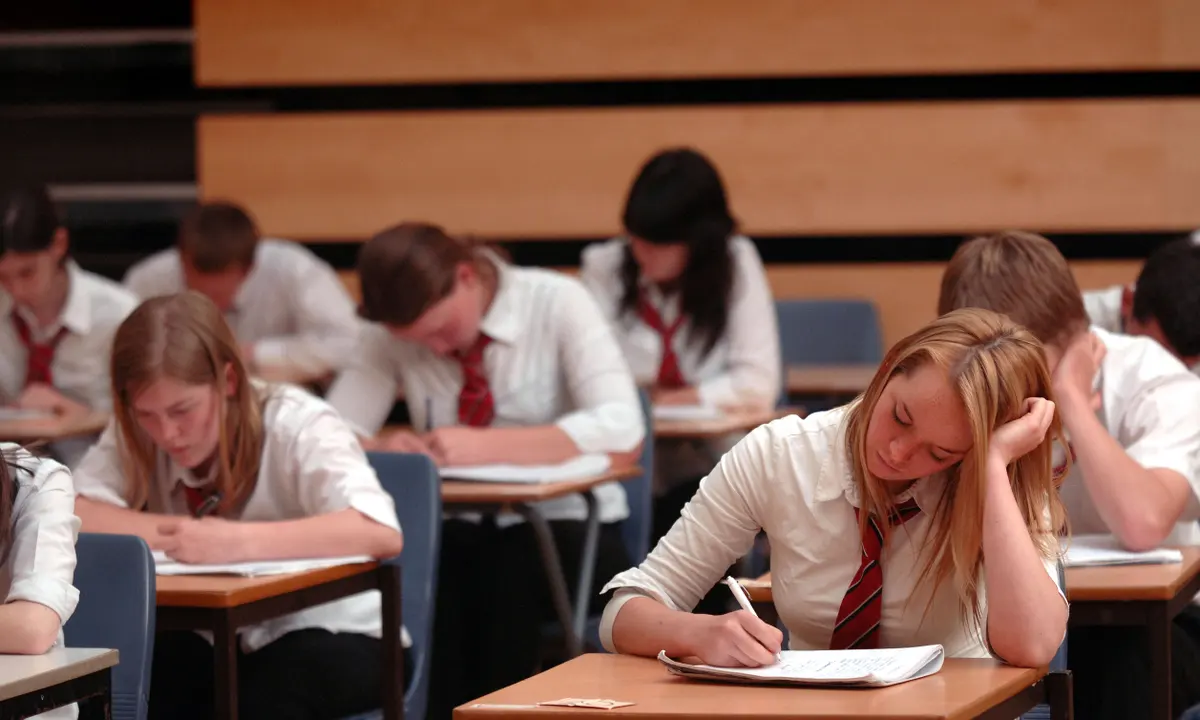
The Times spoke with students at Bedales, one of whom was a current Year 12 pupil at the school, who wished that the system could have been introduced before she sat her GCSEs. She pointed out some of the issues that she had found with the curriculum, stating, “With GCSEs it’s based on learning the mark scheme. Especially with sciences, as some of those things I didn’t know why it was, I just knew that I had to say it was and that would get me marks. I didn’t have the space to understand.”
Another student agreed that fundamentally, the focus of the GCSEs seems to be on learning how questions need to be answered, rather than what the answer actually means, stating, “You have to do so many past papers to understand exactly what they want from you. Otherwise you can just shoot in the wrong direction, even though you know what you are talking about and are still right. It’s really frustrating.”
The general consensus from Bedales students who had taken GCSEs, was that the examinations aren’t strong at developing the skills that employers are now looking for, which are more digital, collaborative, and research based. This is a sentiment that is echoed across the education sector, as educators have noted that there is often too much focus on having to drill students in test performance in order for them to achieve the best possible grades, meaning that there is far less time to think about the content of the subjects, and less time for students to explore and understand topics.
So, in adjusting the flexibility of a school’s curriculum, should we not also consider that the spaces in which students learn must be flexible enough to reflect this changing landscape of education?
Of course, the answer is yes.
A paper from educator Herbert Thomas, entitled ‘Learning spaces, learning environments and the dis’placement’ of learning’ discusses the impact of classroom design on modern educational styles, and how the physical learning environment becomes an integral part of the overall learning process.
“Current approaches to teaching and learning emphasise the importance of student engagement in the form of active, meaningful involvement in the learning process,” Thomas states, continuing, “Current views on learning acknowledge that much, if not most, learning does not occur in formally designated learning spaces, but rather, in informal spaces not necessarily originally envisaged as learning spaces.”
So, in the same way that educators are hoping to open students up to a wider curriculum, learning spaces must also move away from a constrained form of design in order to “liberate learning from a form of physical imprisonment.”
Classrooms must be able to accommodate many different subjects and learning styles, and thus should be flexible enough to be adapted to the changing needs of its users, whether that is through furniture that promotes group collaboration, or clever zoning methods that allow for more independent study.
Within his paper, Thomas suggests that the optimal learning space should be:
-
- Flexible – to accommodate both current and evolving teaching styles
-
- Future-proofed – to enable space to be re-allocated and reconfigured
-
- Bold – to look beyond the tried and tested teaching methods
-
- Creative – to energise and inspire both students and teachers
-
- Supportive – to develop the potential of all learners
-
- Enterprising – to make each space capable of supporting different purposes
- Enterprising – to make each space capable of supporting different purposes
In essence, much like with the idea of offering students more choices and subjects in their educational journey, adapting the design of the spaces in which their education takes place is all done with a view to make learning more exciting and inspiring for students. This takes the focus off the retention and regurgitation of information in the “proper” examination format, and instead moves toward learning for the enjoyment of learning and assessing this through different avenues that more closely align with the skills needed in the modern workplace.
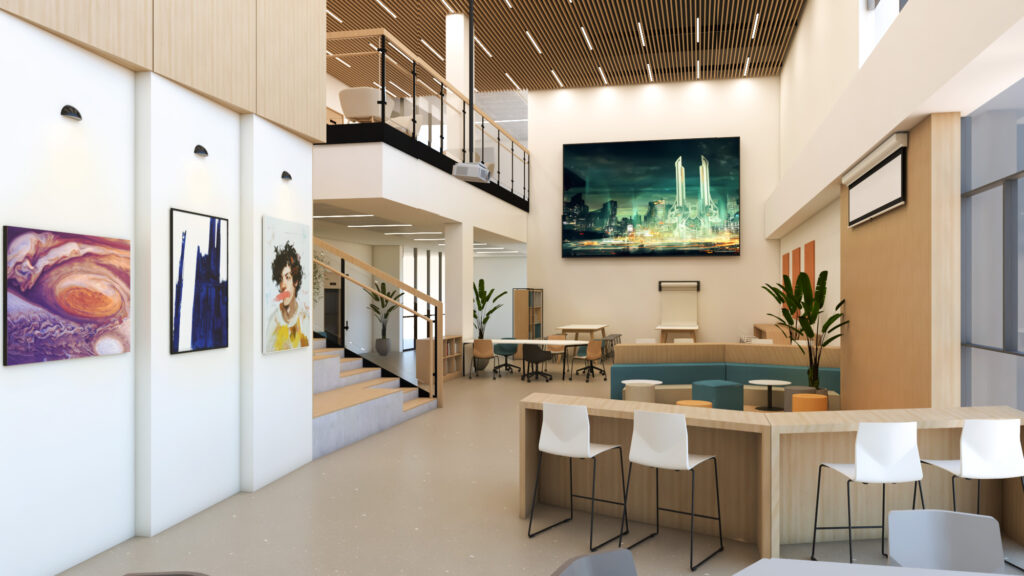
A Kidzink designed flexible collaborative breakout teaching & learning area
Often, traditional learning is a more insular experience, a rigid, front-facing layout which focuses on lecture-driven education, whereas the modern workplace requires employees who are able to work well as part of a larger team, and are adaptable enough to move with the changing pace of different projects. To this end, the reduction of formal examinations may well see students leave school with a better sense of what the working world will expect from them – a steady growth of skills and a more consistent standard of work, rather than a short burst of success or failure on which their work is measured.
Critical thinking skills are becoming increasingly important in the modern workplace, and as schools shift their focus from exam-based studies to more collaborative assessment projects, students are able to better hone these skills for the future. However, in order to properly facilitate these revolutionary educational avenues, the design of the spaces in which this learning takes place should be just as innovative, with the ability to grow and adapt to the changing needs of its users.
Education should invite exploration, and through the expansion of learning methods and the help of clever design techniques, schools can allow their students to thrive, unconstrained by the rigid, outdated assessments that are no longer properly preparing young people for the working world. Hopefully, the positive effects of the changes made at schools like Bedales will bring about true and lasting change for the educational sector as a whole, and we will see more schools adopt this style of assessment in the coming years.

